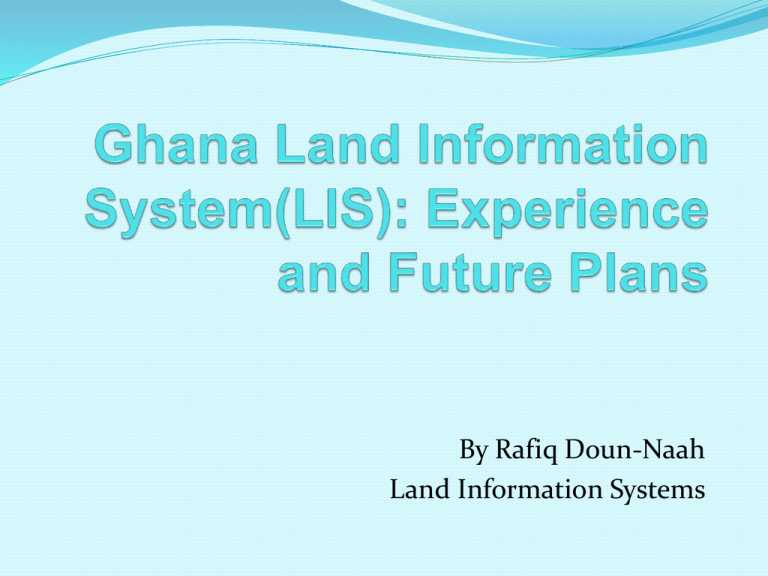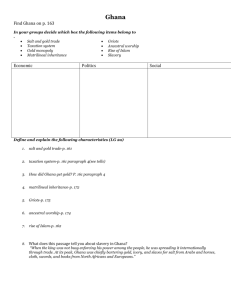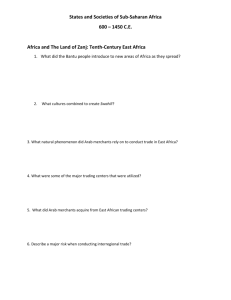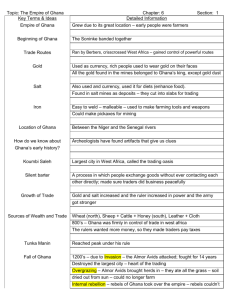Ghana Land Information System(LIS): Experience
advertisement

By Rafiq Doun-Naah Land Information Systems Background Experience Development challenge Development experience Project Management Experience No consideration of t Future Plans BACKGROUND General Overview of the Ghana Land Administration Project (LAP) www.ghanalap.gov.gh Ghana Land Problems prior to 1999 BACKGROUND Cont’d Ghana Land Policy to the rescue Formulated in 1999 with the long-term goal of stimulating economic development, reducing poverty and promoting social stability by improving security of land tenure, simplifying the process for accessing land … LAP implementing the policy BACKROUND Cont’d Detailed Exposition of Component 3 Development of Cadastre and Land Information System Improvement in Geodetic Reference framework Improvement of deeds registration system Establishment of National Land Valuation database Pilot systematic land titling and registration Experience - Ghana LIS Phase I Objectives of the Ghana LIS Phase I Design and develop components that support Systematic Land Title Registration Activity of the Ghana LAP and to introduce staff to a digital working environment To prevent the continuous generation of manual records EXPERIENCE - Development Challenges Escalated requirements (Scope creep) Inconsistent development Team Insufficient participation of counterpart staff EXPERIENCE – Dev’t Lessons Systems development needs comprehensive requirements, analysis and design before development Needs participation of technical staff FUTURE PLANS Design and develop a fully functional and integrated land information system based (preferably) on the SOA Architecture using Open Source Technologies and Principles. To focus on the integration with other information systems and scaling up of the LIS to cover the whole country and include ALL of the processes of the relevant LSAs. Future Plans Convert and enter existing data into the System when it is stabilized and is guaranteed to work successfully. Develop both technical and functional human resource to operate and maintain the system.











